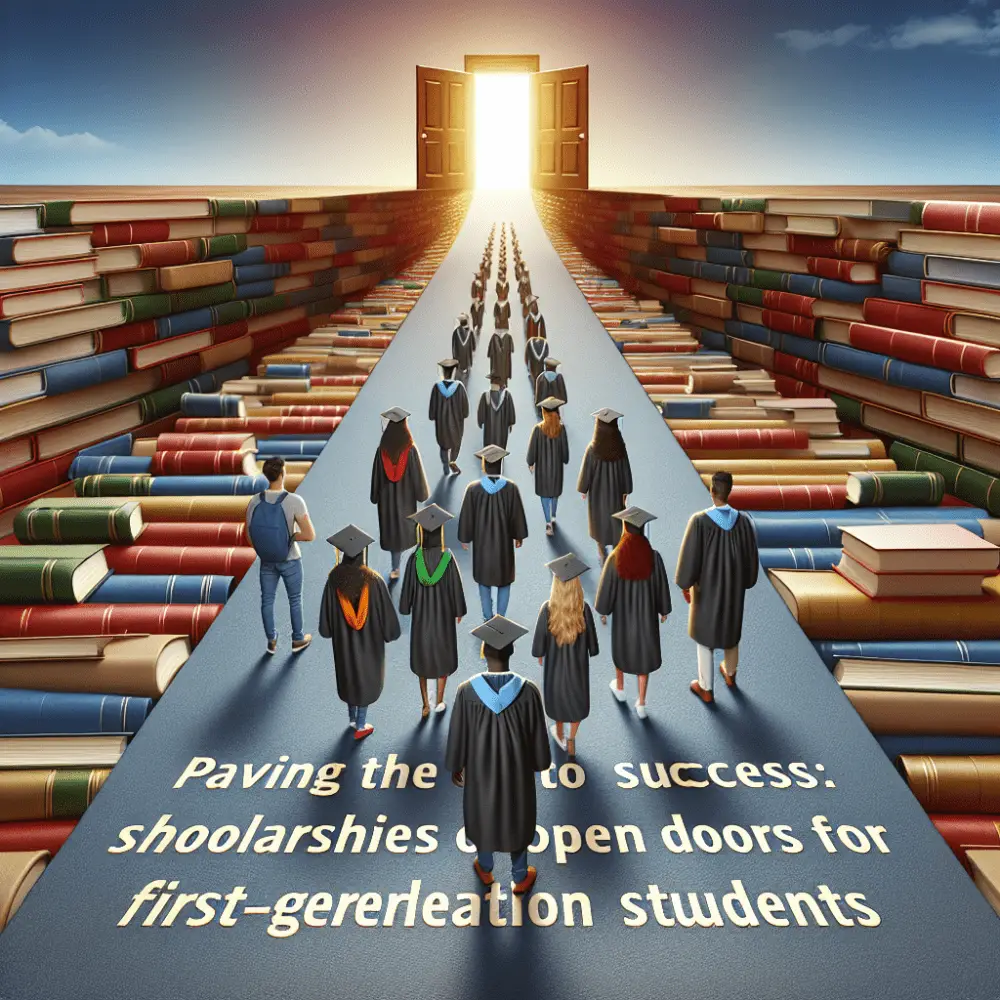
Introduction
In today’s competitive world, obtaining a higher education can be a key factor in achieving success. However, for many first-generation students, the path to college can be daunting and filled with financial obstacles. Fortunately, scholarships provide a lifeline for these students, allowing them to unlock their potential and pursue their dreams without the burden of overwhelming student loan debt.
From breaking the cycle of poverty to ensuring a brighter future, scholarships play a crucial role in leveling the playing field and paving the way for first-generation students to succeed. This article explores how scholarships open doors for these individuals and highlights their significance in creating equal opportunities.
Overcoming Financial Barriers
One of the main challenges faced by first-generation students is financial limitations. Many come from families with limited resources or lack the necessary support systems to navigate the complex financial aid process. Scholarships act as a powerful tool in breaking down these barriers by providing direct financial assistance.
With scholarships, first-generation students can access funds that cover tuition fees, books, and other educational expenses. This financial support lifts the burden off their shoulders and allows them to focus on their studies rather than worrying about how they will afford their education. Consequently, scholarships bring about greater academic success and open doors that may have otherwise been closed due to financial constraints.
Empowering Academic Excellence
Scholarships not only alleviate financial burdens but also empower first-generation students to strive for academic excellence. By recognizing and rewarding outstanding achievements, scholarships inspire recipients to aim high and push themselves beyond their limits.
The acknowledgement that comes with receiving a scholarship boosts students’ confidence and motivates them to pursue their goals relentlessly. Knowing that their hard work and dedication have been recognized validates their efforts and serves as a catalyst for continued success. Scholarships become a driving force, encouraging first-generation students to excel academically and maximize their potential.
Creating Equal Opportunities
First-generation students often face unique challenges as they navigate the higher education landscape. They may lack guidance or knowledge about the college application process, standardized tests, or even how to choose the right institution. Scholarships address these disparities and provide equal opportunities for all students, regardless of their background.
By investing in first-generation students, scholarships bridge the gap between privilege and disadvantage. They ensure that bright minds from all walks of life have an equal chance to attend college and succeed academically. This not only benefits the individual but also contributes to a more diverse and inclusive society, where talent is recognized and nurtured without prejudice.
Frequently Asked Questions (FAQ)
1. How can I find scholarships for first-generation students?
There are numerous resources available for finding scholarships specifically aimed at first-generation students. Websites such as Fastweb, Scholarships.com, and College Board offer comprehensive databases with various filters to help you find scholarships that match your eligibility criteria.
2. What are some tips for applying for scholarships?
– Start early: Begin searching and applying for scholarships well in advance to avoid missing any deadlines.
– Stay organized: Keep track of scholarship requirements, deadlines, and necessary documents using spreadsheets or calendars.
– Tailor your applications: Customize your application essays or personal statements to highlight your unique experiences as a first-generation student.
– Seek guidance: Reach out to your school’s guidance counselor, college access program, or online communities for advice and support.
3. Can first-generation students apply for scholarships even if they have average grades?
Absolutely! Scholarships come in various forms, and not all of them are solely based on academic performance. Many scholarships consider factors such as leadership abilities, community involvement, or overcoming adversity. It is essential to research and apply for scholarships that align with your strengths and experiences.
4. Are there scholarships specifically for certain fields of study?
Yes, there are scholarships available that cater to specific fields of study such as STEM (Science, Technology, Engineering, and Mathematics), arts, humanities, and more. These specialized scholarships recognize and encourage students pursuing careers in specific industries. It is advisable to explore scholarship opportunities related to your intended field of study or career path.
5. What are some additional resources available for first-generation students?
In addition to scholarships, first-generation students can also benefit from college access programs, mentorship initiatives, and financial aid workshops provided by educational institutions or non-profit organizations. These resources offer guidance and support throughout the college application process.
In conclusion, scholarships play a critical role in paving the path to success for first-generation students. By providing financial assistance, empowering academic excellence, and creating equal opportunities for all individuals regardless of their background, scholarships enable these students to break barriers and achieve their educational goals. Through continued investment in scholarship programs and increased awareness about their significance, we can ensure a brighter future for all aspiring first-generation scholars.












